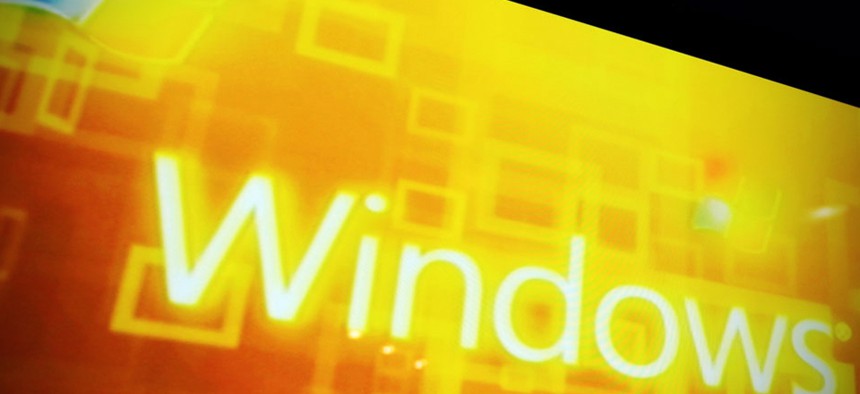Some Agencies Still Using Windows XP Probably Don't Realize It

Adriano Castelli / Shutterstock.com
When Microsoft stops releasing software patches for the obsolete operating system next month, forgotten networked appliances could pose the biggest opening for hackers to exploit.
When Microsoft terminates security support for its Windows XP operating system next month, some agencies will continue to run the platform unawares, and that’s likely to make some hackers very happy, cyber researchers say.
That’s because government agencies aren’t very good about knowing everything that’s on their networks, said John Pescatore, director of emerging security trends for the SANS Institute. “I think that's the biggest risk.”
Microsoft on April 8 will stop releasing patches for software holes in the operating system, which the company introduced 12 years ago. For hackers, that represents a golden opportunity to create "0-day exploits" that take advantage of newly-discovered vulnerabilities before anyone has time to fix them. Agencies are expected to fight back with other defenses, such as modern intrusion detection systems and firewalls.
But some agencies, unbeknownst to them, have unprotected networked appliances, such as printer servers and copy machines, embedded with the desktop version of XP. The government is notorious for losing track of inventory, according to annual federal audits.
"The bigger risk is not in government laptops and PCs," Pescatore said. "It is devices that have Windows XP embedded in them.”
According to Microsoft, more than 90 percent of federal customers will have proactively moved off of XP to Windows 7 and Windows 8 by April. Administration officials say agencies have taken precautions and they don’t expect to see significant problems associated with Microsoft’s decision to end support for XP.
But cyber specialists say even agencies aware that laptops, desktops and other appliances are using XP might be slow to respond to a threat.
Microsoft "won't be willing to react to the news that somebody else has found one" new hole in the operating system, said Jonathan Katz, University of Maryland computer science professor and director of the Maryland Cybersecurity Center. Agencies will have to identify the problems and solutions independent of Microsoft, he said.
Some agencies have opted to stay with the operating system because their XP-based machines are not connected to a network, or because they are dependent on proprietary software designed to work with XP. Those systems are still potential prey, researchers say. And the only remedy for dealing with a threat might be halting agency activities.
"I assume that people are still putting in USB drives or otherwise uploading data to them, and so they still are at risk of being infected even though maybe not as easily as something connected to a network,” Katz said.
If a serious vulnerability is found, any agency still running XP "is almost necessarily going to have to take their computers offline," resulting in "an interruption of operations while they are upgrading the system,” he said.
The government, not just Microsoft, is responsible for the mess, security researchers note.
"Certain agencies have allowed themselves to create a relationship with dependency on one external vendor, with the result that if the external vendor decides to discontinue its product it has major problems for the customer, in this case the federal government," said Hans Klein, a professor at the Georgia Tech School of Public Policy, who studies federal technology policy.
On the upside, security analysts do not anticipate cyber assaults on government machines happening on April 9.
"I don’t believe we will see a huge surge of new 0-days as soon as Microsoft stops releasing patches," because that would not be cost-effective for hackers, said Johannes Ullrich, dean of research at the SANS Technology Institute.
"Even with Windows XP patches ceasing, the attacker will still have to deliver the exploit to the system," he said. "This will require user interaction in many cases and the use of additional software" such as email or Web browser applications.
Katz said, "I think people who are not upgrading are banking on that happening later rather than sooner.”
(Image via Adriano Castelli / Shutterstock.com )






